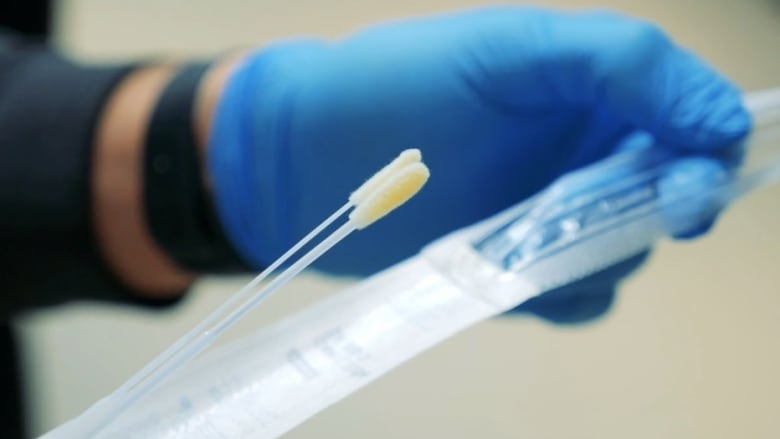Ontario residents who are well but worried putting pressure on emergency rooms
'You run the risk of infecting other people,' ER doctor at University Health Network says

Ontario residents are being urged to stay away from hospital emergency rooms unless they are really sick because an increase in visits from people who are well but worried is putting pressure on existing resources, says a Toronto ER doctor.
Dr. Erin O'Connor, deputy medical director of the University Health Network (UHN) emergency departments, said the number of emergency room visits in the hospital network has increased by 25 to 30 per cent. Most of those visits are from people who want to be tested for COVID-19.
"This is a volume of patients that do not otherwise need to be in the emergency department. They are not sick. Some of them have runny noses, slight coughs, mild fevers, that are concerned about the virus, many without any risk factors," O'Connor said.
"They have not travelled and they have not been in contact with a positive case."
According to Toronto Public Health, people will be tested for COVID-19 only if they are showing symptoms, they have travelled outside of the country within the last 14 days, and they have had contact with a person who has a confirmed case of the virus.
COVID-19 symptoms include shortness of breath, cough, fever and sore throat. If a person has a combination of two risk factors, the hospital would recommend a swab, she said.
O'Connor said people with risk factors for COVID-19 and who are elderly or have significant diseases, such as active cancers, cardiac disease, or are transplant patients, should go to the emergency department.
But people who are young and healthy, "without any medical co-morbidities," should stay at home or go to one of the assessment centres, she said.
"If you don't have those risk factors, or the symptoms that we mentioned, or the combination of the two, even if you come to the emergency department and we assess you, that doesn't mean you will be swabbed," O'Connor said
"You run the risk of infecting other people, other very sick and unwell people in our emergency departments."
'It's been quite difficult,' doctor says
Until the hospital began what it calls "droplet precautions," it was taking staff members up to an hour and a half to clean rooms where people were being tested, she said. The cleaning was required to keep patients safe and to make sure air was circulating properly.
Previously, the hospital network was on "airborne precautions," she said. The change means the hospital network can see people faster.
But the increase in ER visits from people who should not be there has been challenging, she added.
"It's been quite difficult," O'Connor said.
The University Health Network includesToronto General, Toronto Western Hospital, the Princess Margaret Cancer Centre and Toronto Rehabilitation Institute.
Ontario creates self-assessment tool
The Ontario government has created a self-assessment tool for people to use before visiting an assessment centre or asking to be tested.
People should go toOntario.ca/coronavirus and click on the blue button.
If their symptoms meet the criteria for COVID-19, people are urged to contact their primary care providers, Telehealth Ontario at 1-866-797-0000, or local public health unit.
Primary care providers, Telehealth nurses and local public health officials are trained to provide clinical assessments based on the information provided.
The Ontario government says people may be coached on how to self-isolate or may be referred to health-care agencies based on their symptoms.
"We expect to return to expanded testing as soon as we're confident in stable supply. To do so, we're actively working with our manufacturing and supply chain partners to procure additional test kits," said Travis Kann, spokesperson for Health Minister Christine Elliott.
With files from Mike Crawley












_(720p).jpg)


 OFFICIAL HD MUSIC VIDEO.jpg)
.jpg)



























































































